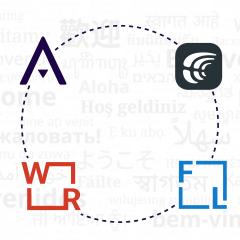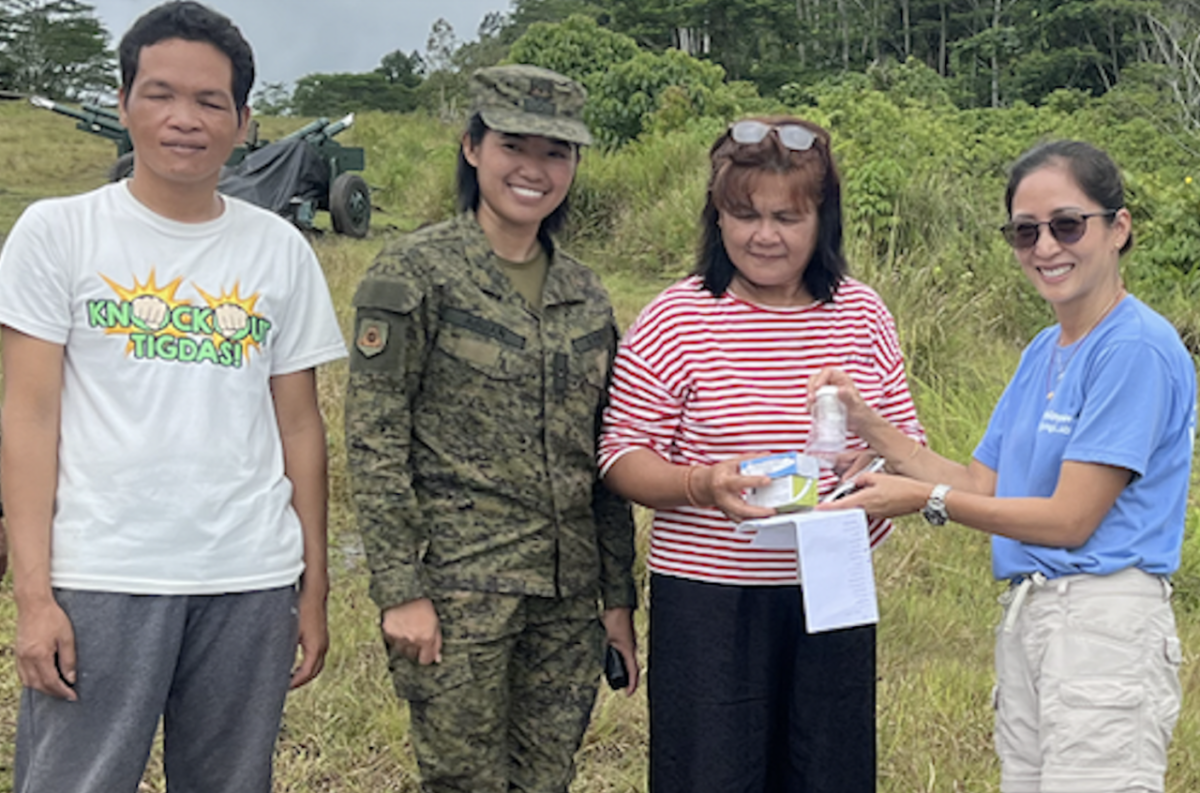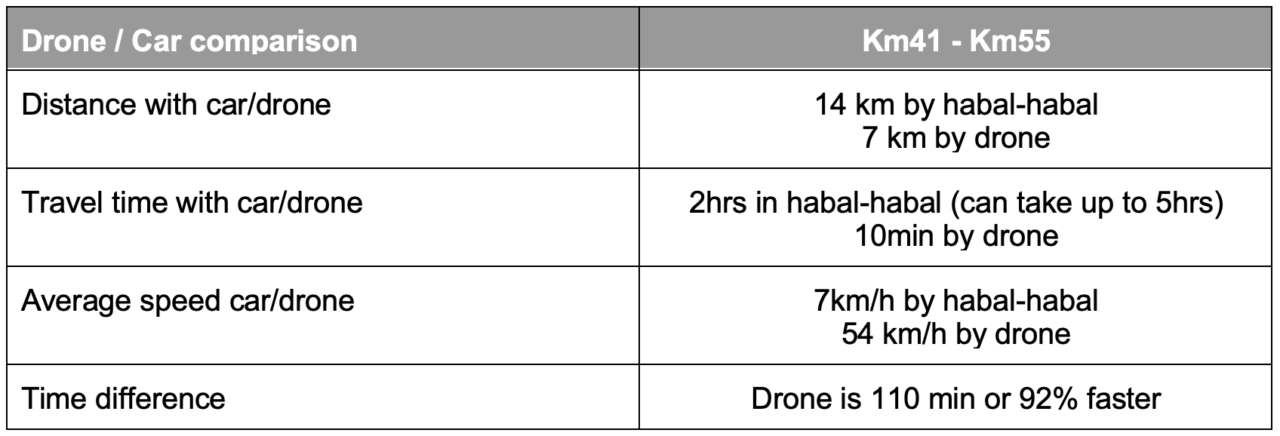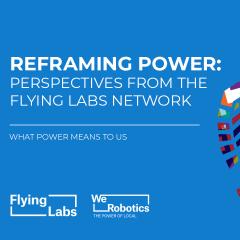
Building Local Expertise in Medical Drone Delivery in the Philippines
June 2nd, 2022

One way to enable locally-led practice in medical drone deliveries is to build local expertise and ownership in drone deliveries with local experts. Suppose the first-ever use of drone delivery in a given country is locally-led. In that case, this first-mover advantage can compel national and international partners to prioritize working with local experts. So we're excited to share that Philippines Flying Labs now has the expertise and technology to lead medical drone delivery projects across the Philippines. They are also the first organization to carry out medical drone deliveries in the country. In addition, this was the first time that the Civil Aviation Authority of the Philippines (CAAP) granted beyond visual line of sight permissions to do drone deliveries. Thanks to our strong partnership with Pfizer and Pfizer Philippines, this first-mover project was made possible. Our joint work in the Philippines builds on our prior work with Dominican Republic Flying Labs and Pfizer, along with our many other medical drone delivery projects in Africa, Asia and Latin America. The role of WeRobotics is to facilitate knowledge exchange, technology transfer and opportunity transfer, per our localization and shift-the-power model.
Dr. Heidi from Philippines Flying Labs worked directly with local and national public health stakeholders to create an opportunity to apply their newly-built expertise in medical drone deliveries directly. Together with Pfizer Philippines, they identified the municipality of San Luis in Agusan Del Sur as a likely partner for this proof of concept. Because of the mountainous topography, most of the areas in San Luis are hard to reach. The roads are almost non-existent and are impassable, especially during the rainy season. So naturally, Philippines Flying Labs and partners carried out extensive community outreach well before any drones took to the air. Local health partners chose Km 41 in Sitio Tagpangi as the drone take-off point and Km 55 in Barangay Binicalan as the drone delivery point. Only four-wheeled vehicles can reach Km 41 and reach Km 55 from Km. 41, the community has to hire a makeshift mototaxis called habal-habal to carry extra cargo. A one-way ride on a habal-habal can cost more than 30 times what a local community member earns in one day. In addition to the high cost and safety issues of using the mototaxis, another perilous issue in the area is the continued outbreaks of armed conflict with the local insurgents. This explains why local health partners were keen to identify alternative ways to safely deliver essential medicines and vaccines to the community.
 WeRobotics provided Philippines Flying Labs with a comprehensive, in-person training on the DJI M300 industrial drone. More specifically, WeRobotics engineered an upgrade (both hardware and software) to transform the M300 into a full-fledged cargo drone, which they transferred to Philippines Flying Labs along with all the technical know-how, standard operating procedures (SOPs), and checklists needed to safely and effectively operate the cargo drone. In general, 80% of cargo drone training focuses on transferable SOPs and checklists, while the remaining 20% focuses on the specific features of the cargo drone at hand. This means that any subsequent training that focuses on a different type of cargo drone can already build on 80% of the knowledge that is already in place.
WeRobotics provided Philippines Flying Labs with a comprehensive, in-person training on the DJI M300 industrial drone. More specifically, WeRobotics engineered an upgrade (both hardware and software) to transform the M300 into a full-fledged cargo drone, which they transferred to Philippines Flying Labs along with all the technical know-how, standard operating procedures (SOPs), and checklists needed to safely and effectively operate the cargo drone. In general, 80% of cargo drone training focuses on transferable SOPs and checklists, while the remaining 20% focuses on the specific features of the cargo drone at hand. This means that any subsequent training that focuses on a different type of cargo drone can already build on 80% of the knowledge that is already in place.
The M300 Cargo Drone was selected for this project for several reasons. First, it is more affordable than the majority of commercially-available cargo drones. Second, it is easier and quicker to learn and operate. Third, the M300 can also be used for data collection and mapping. In short, the M300 Cargo Drone is an ideal starter drone.
WeRobotics also engineered a dedicated cargo box for the M300 Cargo to enable cold chain deliveries. The cargo box can maintain a 0 to 8°C temperature range for more than 5 hours with an outside temperature of 32°C.
Philippines Flying Labs and local health partners delivered a wide range of essential medicines between Km 41 to Km 55 in Agusan. This included the following: Pfizer Cominarty Purple COVID-19 vaccines; Pfizer Cominarty Orange COVID-19 vaccines, Janssen COVID-19 vaccines, Celecoxib, Clopidogrel, Amoxicillin, Metoprolol, Ciprofloxacin, Dicycloverine, Carvedilol, Captopril, Paracetamol, Amlodipine, Lagundi, Loperamide, Co-Amoxiclav, Omeprazole, Ambroxol, Aquatabs, Cetirizine, Losartan, Clonidine, Propanolol, and Mefenamic. In addition, the team also used the M300 Cargo Drone to deliver water samples, TB samples, TB sample "laboratory request and results" forms, vaccination cards, face masks, and syringes.


In addition to delivering medical supplies, a critical value of the cargo drone delivery was shortening the travel time. From the usual 2 hours of trip duration via habal-habal from Km. 41 to Km. 55, the trip was shortened to 9 minutes making this an excellent alternative to service delivery in this region. This is how the use of the M300 Cargo Drone compared to ground transportation:

In closing, medical cargo drone projects (even those at the proof of concept stage) must respond directly to the logistics needs of the local health care system. The local health care system is critical to generating both local and national demand for new logistics solutions. This process is often the most time-consuming element of a cargo drone project, but it is also essential.

Recent Articles

